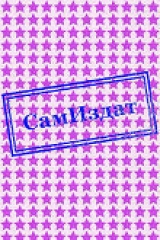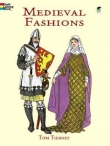
Текст книги "About A Book (СИ)"
Автор книги: Владимир Залесский
Жанр:
Современная проза
сообщить о нарушении
Текущая страница: 3 (всего у книги 7 страниц)
Probably every Russian reader it is useful to know that Peter eventually acquired the selfeducation is comprehensive and encyclopedic.
With the «art» he is acquainted practically.
He was the master of the fourteen crafts.
Peter became a great military leader, who wanted to, could and was able to do everything himself.
For example, a whole month Peter kept himself on the soldier's rations, performing all the duties of the soldier. A personal experience gave him reliable data to determine the strength and endurance of his army. Training the newly formed regiments is always performed under his direct supervision.
Peter waged war, as a practical sage. He is clearly aware the goals of the war, the necessary forces and means, and he never attempted to achieve the impossible.
Before the decisive moment during the battle of Poltava, the Russian Emperor addressed his soldiers with the words:
"Soldiers! Here the hour has come which will decide the fate of the Fatherland. And so you shouldn't think that you fight for Peter, but for the state, entrusted to Peter, for the country... You also should not confuse the glory of the enemy. Think about your victories over him.
As for Peter, know that his life is not dear to him. His purpose is only to Russia lived in happiness and glory for our well-being".
During the battle of Poltava the Swedish army adopted the linear order of battle, and at 9 a.m. went on the attack. In a fierce melee the Swedes managed to press the Russian centre, but in this moment, Peter I personally led the counter-attack by the second battalion of the Novgorod regiment and restored the situation. During this fight one Swedish bullet pierced his hat, another one stuck in the saddle, and the third flattened Golden crucifix on the chest.
Practical mindset of Peter the Great combined with philosophical generalizations. For some time before the death of Peter, among unbearable suffering, he spoke ironically: «I know what the poor animal is man!»
The influence of the reforms of Peter the Great was so significant and lasting that in spite of turmoil in Russia, its political power has not been shaken.
Quite aptly and eloquently described the diverse transforming activity of Peter the Great, the famous Russian historian Pogodin:
«We Wake up. What is now the day? January 1, 1841. Peter the Great ordered to count years from the birth of Christ, Peter the Great commanded to count the months from Jan. (...) Catches the eye of the book – Peter the Great introduced the use of this font, and he carved the letters. (...) Brought Newspapers – Peter the Great started them. You need to buy different things – all, from the neck of a silk shawl to a shoe sole, will remind you of Peter the Great: he prescribed, introduced them into use... (...) Lunch from salt herrings to wine, all meals will tell you about Peter the Great. (...) Meet the ladies admitted into the company of men at the request of Peter the Great. Go to University – the first secular school was established under Peter the Great, etc.»
In conversation with You, Mr. Pavlenkov, the publisher, I cannot fail to note, – Ivanov tapped fingers lying beside the newspaper. – Learned some foreign languages, Peter found time to read books of historical and technical. After dinner he usually read the Dutch Newspapers, making marks with a pencil on «St. Petersburg Vedomosti». Peter was actively engaged in the selection of books for translation; he edited textbooks, managed the compilation of the maps and descriptions of various localities, took part in printing and publishing. Decrees and legislation of the era of transformation – for the most part the works of Peter himself, or prepared under his direct supervision.
Peter I was the author and editor of a number of statutes, military-theoretical and historical works. Among them – «The Book of military regulations», «The Book of the marine regulations», «Regulations concerning the administration of Admiralty and the shipyard...», «Book of Mars or military Affairs...»
Essays «History of the Swedish war» and «Reflections on the causes of the Northern war» were prepared with close cooperation of Peter.
He was proportionally complex, his figure was not overwhelmed by its size. Full, dark, precisely sculpted face exuded calm and deep awareness. Quick, shrewd, slightly contemptuous glance, large and massive forehead...
As if summing up the reflections on the contents of a compact 100 page book about Peter the Great, Ivanov has formulated the wish:
– However, we will not lose hope that the General reader will – over time – to buy and read «thick» books with a lot of detail, figures, thinking, versions, and interpretations ...
– Financial conditions of cooperation of the authors with our series «Life of remarkable people» are no secret, – continued Pavlenkov.
– Yes, – responded Ivanov.
– Are you ready to start writing a biographical sketch of the life and public activities of Peter the Great for the series «Life of remarkable people»? The approximate volume of the book – 100 pages? – said Pavlenko.
– Yes, – said Ivanov.
– In that case, – I propose to begin! – summed up the negotiations Pavlenkov.
27 may 2017.
Translation from Russian language into English language: 04.09.2017.
Владимир Владимирович Залесский "Диалог о Петре Великом".
5. The Tale about William Gladstone and about an exhibition
November, 1877. Science Museum, London. Exhibition of archeological finds.
William Gladstone approached one of the twenty-four showcases with ancient artifacts.
A lot of time, efforts he has expended, promoting opening of this exhibition.
Numerous visitors gave the opportunity to come near the display case.
All became silent.
All were waiting for opinion of the connoisseur of Homer, the author of books on theological and church questions.
Suddenly the British officer has spoken, which also was standing next to a showcase. He in appearance already had combat experience.
– Or – victories, or – the fate of archaeological finds, – the officer has formulated the thought briefly – as in an army.
Visitors of an exhibition with amazement have translated views to the officer.
William Gladstone looked at the officer with interest.
The officer, encouraged by general amazement, has continued:
– Archeologists are useful. Asia. Egypt and Arabia. Diaries. Topography. Exploring the terrain. Knowledge of languages and history. Magnificent exhibition! Britain again ahead!
The officer has kindly looked at William Gladston, has slightly inclined the head. Then for a second he was before William Gladstone on standing at attention.
«How many efforts were required to cancel practice of sale of officer patents, but tried not in vain», – William Gladstone has thought.
Aloud he has spoken:
– The commitment of the people, the common people to the throne and Britain is more valuable than the Army and Navy, gold and silver. It is honor and glory of the country. This exhibition, the first in the history the public exposition of unusual archaeological finds, exhibition, which can be visited by any Briton and guest of our state, makes honor to our country and serves the benefit of science!
In 1883 in the second premiership of William Gladstone the officer has been attached to the Egyptian army, held important posts. And in 1892 (this year W. Gladstone became a prime minister for the fourth time) the officer has held a position of «sirdar», that is the Commander-in-Chief of the Egyptian army.
In the winter of 1888, two European scientists with research goals swam on a hired yacht up the Nile.
Suddenly their yacht has been shooted from the coast. There was a danger of capture and the yacht, and crew, and scientists.
At a critical moment, like magic, appeared the gunboat with the British crew, which forced the attackers to retreat.
The shot from the ship cannon could be reviewed and as a way of the help, and as a cannon's salute.
One of scientists, been talking in half an hour with the the British lieutenant, commander of the gunboat, has said:
-Your face is familiar to me, Mr. Lieutenant. It seems to me You – at that time still the young man – were ten years ago among visitors at an exhibition of ancient treasures in the Science Museum, London.
– Yes, sir, – the Lieutenant has answered, – at that time I still studied. But at the first opportunity I have visited this remarkable exposition. And the Governor of Provinces – and all of us – remember the impression, was made by treasures. We try to get acquainted with new archaeological achievements and new book publications.
– The science moves forward! – the scientist has noted, having politely inclined the head.
The assistant to the commander of the gunboat joined the conversation with the scientist:
– I will note, sir, that we under a big impression both of discoveries, and of books, and of intensive development of archeology. Your example of maintaining diaries is very interesting to us. And we prepare our diaries for the publication. Perhaps, they will be interesting both to public, and to outstanding scientists. Indicative names: «The Diary of the Navy officer» and «The Sudanese diary».
– I believe that the publication of the book «Battles on the River» – an event of the close future, – the commander of the gunboat has added.
Having discussed plans of safe return of the yacht toward the coast of the Mediterranean Sea, the scientist has added: «The archaeological collection is replenished. I hope for the common meeting in the updated museum halls with an expanded exposition of ancient values!».
February 02, 2017 – March 03, 2017.
Translation from Russian into English: January 19, 2018.
Владимир Владимирович Залесский "Сказка об Уильяме Гладстоне и о выставке".
6. Dialogue about Lack of Preliminary Censorship
The Reader and the Readeress went along the park pathway, discussing the books were read in M. Gorky's cafe-library.
– Somewhere I have found a question: and whether were published in France at the time of Napolйon I of the book about invasion of the Swedish troops of Karl XII into Russia. Strange question, – the Readeress admitted. – It is well-known that Napolйon I was one of the most knowing, competent rulers.
The Reader has smiled:
– Napoleon hasn't established for newspapers of preliminary censorship.
– Blossoming of the press! – the Readeress has smiled in reply. – After destruction of the French Directory and coming to power of the general Bonaparte he has destroyed all Parisian political newspapers, except thirteen (60 of 73).According to the order of the minister Joseph Fouche in each editorial office of more widespread newspapers has been appointed editor-censor who was receiving a salary from means of the newspaper at a rate of 2/12 income of the newspaper.
– And what about books about the Swedish troops invasion? – the Reader has demanded conclusions. – Censorship was extended over books?
– In February, 1811 censorship has forbidden French translation of some Psalms of David because «malicious» could see in David's words a hint on oppression of the Pope by Napoleon I. «... Sometimes there was a subject to confiscation even King Solomon with his Parables...», – the Readeress has reminded. – E.V. Tarle wrote about Napoleon I that «he has absolutely taken out all domestic and all foreign policy off the sphere of discussion and considered as great grace the permission for the rare bodies of the press to publish only of most short information notes of „political character“, i.e. simply notes about news, short messages about the facts».
«I don't attach any significance to disputes of these fools», – Napoleon said...
The general line in management of «the sphere of the press» has been directed to reduction of number of discussions, debates, emotional subjects, to reduction of number of newspapers...
«When each person will have rather common sense to be concentrate onto the sphere of own the duties?» – the French ruler who has come to the power tried to understand.
What was the subjects of trade of French book traders at that time? Old editions with pictures, jokes, stories about beautiful women,the lists and the images of beautiful women...
– «Naked asses»? – the Reader alarmed.
– In a privileged position there were scientific, professional publications, though and they were under «pressure», – the Readeress has tried to neutralize the alert.
– And protection of the law? – the Reader was indignant. – Principles of the French revolution? To the law and the principles have turned by a bare back (a lower part)?
The Readeress has sighed:
– The minister of police of France Joseph Fouche concerning legality joked: «My dear, the constitution is a beautiful woman on whom it is allowed, passing by, to throw an admiration look, but she doesn't belong to public».
The police watched and printing houses, and authors of publications, and buyers of printing editions.
The bookstores were under constant, close observation of the authorities.
But it is necessary to mention also examples of the loyal attitude of the power towards writers.
During an era of a marriage of Napoleon I on the Austrian princess a large number of authors were glorifying this event, have composed verses. For their remuneration the sum of 88 400 francs has been spent from treasury. From marriage of the emperor the child who has received a title of the Roman king was born. In honor of the birth of the Roman king a number of works has been written; for remuneration of authors 30 thousand francs have been spent.
– If any structure can provide itself with work, then the such a situation for such structure is comfortable, – the Reader has assumed. – I will give an example of effectiveness. The minister of police of France, to the greatest indignation, has learned that the censorship subordinated to the Minister of Internal Affairs will confiscate even books which he (the minister of police) writes out from England. That is, the staff of the Ministry of Internal Affairs has found out that the minister of police receives and reads «undesirable» books. What result, what benefits of such information? But – all are busy with (important) affairs.
And here England printed and read all books (and continues to do it), adheres – it seems, – the principles of freedom of speech and freedom of information – and, probably, doesn't suffer.
In principle, it is possible to make subject to control thesightseeing of architectural sights. The look of tourist falls on others windows. And what things and events tourist there sees? To what opinions does come? To what actions the tourist is induced? Big necessary information and analytic business. To collect information, to generalize, take measures...
The majority spoke and are speaking about the Enlightened mode of the individual power of Napoleon I. But someone could speak risk of approach of «the kingdom of ignorance».
– There were also positive phenomena, – the Reader tried to keep objectivity. – The retired cavalry captain Marten has intended to publish in Bordeaux «Journal des dames» devoted specially «to ladies, love, beauty and Graces».
Permission has followed. Though were needed the personal information on the captain, correspondence, solemn permission from the minister of police.
– But there is not only an advantage, but also harm of freedom of speech. Statements meet, for example, in the sense that the press «disorients», «confuses», «excites», «involves», «do black», «pits», «offends», «provokes», «creates undesirable moods»... – the Readeress has noticed.
– Action gives rise to counteraction...– the Reader spoke. – Whether are connected planning of invasion of Napoleon to Russia in 1812 and the subsequent death of Great army with lack of publications, discussions, books about invasion into Russia of troops of the Swedish king Karl XII? – the Reader has continued reasonings. – About Russia, about its climate? About history of Russia? I find it difficult to draw a conclusion.
– Gloomy picture... «Crush» of readers, writers, publishers, typographers, book dealers on the historical bridge between the French revolution and mature state system... Berezina... – the Readeress has expressed opinion.
– You shouldn't exaggerate, – the Reader has made the amendment. – France is known for the outstanding literature, including, works on military subject.
– It is possible to remember the expressive description of E.V. Tarle of process of adoption of the decision on the beginning of unlimited submarine war, pernicious, self-destructive for the German Empire, – the Readeress has remembered. – «Leaders of a Reichstag» «discussed» an issue; but they had no appropriate information. The account of submarines went on tens, at such quantity the underwater fleet of Germany of cardinal counteraction to the opponent couldn't render. However the exact number of submarines wasn't known; it was secret. After the decision of leaders of the German Empire – in the conditions of deficiency of information – about the beginning of unlimited submarine war was followed not a victory, but declaration of war by America and «automatic» defeat of Germany in 1918. It was necessary «to know only a little», not to know «superfluous», to have «rather common sense to be concentrate onto the sphere of own the duties»!
– In E.V. Tarle's works I haven't met detailed estimates of a condition of freedom of speech in England, – the Reader developed a thought. – However, the short description of E.V. Tarle by management of the war in England may be compared with slightly ironic description of making decision on the beginning of unlimited submarine war. The tonality of this laconic description in itself is curious: «. . The War Cabinet was resolving in final instance all issues – military, diplomatic, economic, financial, questions of supply and food, – a word, all problems connected with warfare; the ministries were only the tools executing his orders. The War Cabinet was meeting twice a day, daily during the all the time of the existence... Executive body of a War Cabinet, the enormous secretariat, created along with an Cabinet, (at first 36, then 98 and at last 136 people), not only transferring to the ministries, armies and the fleet orders of a War Cabinet, but actively monitoring their exact and fast performance». «The head of a War Cabinet Lloyd George has addressed Holland, Norway, Denmark, Sweden with a persistent request to give to England their merchant fleet „for temporary use“ ...». «The most favorable guarantees and material compensations were given. (...) On it finally all calculations of the German military supreme commanders have failed, calculations, however, and without this emergency measure couldn't be fulfilled».
I will mention that by 1914 – when has begun World War I – the politician and the parliamentarian Winston Churchill has written a number of books. He had experience of the officer and war correspondent. In these books military operations with participation of the English troops (some kind of «local wars») during before World War I were described, in particular. Anyone could read these books, they were popular.
– Well, many Russian generals who were involved in World War I had literary talents, – the Readeress has noticed. – Many generals of different armies have written memoirs.
– In memoirs of Walter Schellenberg, one of heads of intelligence agencies, – the Readeress began to remember again, – there is a story about how he has submitted to leaders of Hitlerite Germany at the beginning of 1942 the report on the potential of war industry of America and on opportunities of the U.S. Air Force. Heydrich has been struck with contents of the report; especially he was amazed by data on production of steel. Goering called the report «nonsense». Hitler was very angry and has said that he doesn't trust to a word. After the end of war Goering has told Schellenberg: «Yes, it has turned out that you told not nonsense».
-In Hitler's Germany were negative about freedom of information, to freedom of speech,-phlegmatically said the Reader.
– Comparison of the Napoleonic, Kaiser"s and Hitlerite regimes as it seems to me, – isn't right. Even – it is incorrect, – the Readeress admitted.
– Not political regimes, but level, quality of decisions in the conditions of deficiency of information, in the conditions of absence or limitation of freedom of speech, freedom of information are compared, – the Reader has directed attention. – Someone could and can freely read ANY books by ANY authors, and someone – freely to admire «naked asses».
– If to go deep into history, then it is possible to remember that by the Imperial Manifesto of Nicholas II on October 17, 1905 the population of Russia has been granted, in particular, freedom of speech, – the Readeress has added.
– And this freedom was real, – the Reader didn't begin to object. – V.N. Kokovtsov remembered how, being in the head of the government of Russia from 1911 to 1914, he repeatedly counteracted initiatives «to restraint the press». The same V.N. Kokovtsov wrote about «remarkable» economic blossoming of Russia in a decade between 1904 and 1914. Casual coincidence?
– The citizen living in the educated and progressive society, in the humane, benevolent environment, – the Readeress has spoken, – as a rule, keen on the positive purposes of this society, is involved in it's (society) progressive processes. He doesn't need the bans of «harmful» books. He (citizen) or won't (will not have time) to read them, or they will leave him indifferent, or will generate at him bewilderment or rejection... Are the «naked asses» an element of freedom of speech, freedom of the press, freedom of information? Of freedom of creativity, at last?
– «Naked asses» don't contradict freedom of speech, freedom of press, freedom of information, freedom of (scientific) creativity: public anatomic atlases demonstrate it, – the Reader has assumed.
– What kind the "content of message ", which the creators of «naked asses» are sending? – the Readeress insisted.
The Reader and the Readeress have sat down on a park bench. After whiffs of wind the heat was felt. Then again the coolness came.
August 05, 2017 – August 12, 2017.
Translation from Russian into English: January 21, 2018 – January 23, 2018.
Владимир Владимирович Залесский "Диалог об отсутствии предварительной цензуры".
7. The Christmas story
One of readers of cafe-library has approached Gorky:
– Alexey Maksimovich! To you, – as I heard, – it is possible to address concerning literary initiatives, to hear your opinion.
– Please.
– I have written «The Christmas story». It is interesting what you will tell.
Gorky has begun to read:
"Today I have gone outside from the house and have begun to feed with grain crumbs of birds.
One of the birds sat next to me on the branch and began to chirp.
At first I thought of some themes, but then have switched to a chirping of a bird.
My mood improved.
I have come back home and have written «The Christmas story»".
Gorky has read up the text, has thought.
He have returned a sheet of paper, and, smiling, have said:
– Continue to listen to birds.
The reader has thanked Gorky and has gone to a table where his books lay.
– Wait a minute!.-Gorky has said. – Having read your story, I would like to remember words from the Bible: «Behold the fowls of the air...».
– We will listen to birds, to read the Bible, to read books, – the reader has answered.
– And to write stories, – Gorky has joked.
January 01, 2018 18:05
Translation from Russian into English: January 1, 2018.
Владимир Владимирович Залесский "Рождественский рассказ".
8. The Sketch about the Literary Dispute
– You see, ...classics ... So ...
– It is clear. ... Interest of readers. And not only at the airports and at stations before boarding on the airplane or on the train.
– ... order ... And before him – hundred days.
– You must think on a more substantial scale. Hundred years before the order. And a grant – yours.
– In the morning a grant, after hundred years – chairs.
– Be a realist. Twice two – four.
– Full privacy of deposit!
– Send oranges by packets!
– Daladye is the head!
– On the battery there are no shells any more.
– It is necessary quicker on a bend.
– Sail! Have torn a sail!
– I repent! I repent, repent!
January 7, 2018 23:44
Translation from Russian into English: January 7, 2018.
Владимир Владимирович Залесский "Скетч о литературном диспуте".
9. The Short Story about the Bottom
The religious protagonist in a pit sits. Together with the wife. It's damp, cold, heavy.
He have decided to distract. He have turned on the laptop. Have gone out in Internet.
Browse: news. The fight. The incident. The razborka. «u-u-Yes...». The Molotov cocktail ... «Is what cocktail, the wife? To which in long dresses come?» What to answer the wife? She jokes in reply: «In clothes black ...».
The religious protagonist looks further: website of newspaper. On the first page even the writer – classic is represented. Russian-Soviet. The protagonist has remembered: «At the bottom». He have sighed. He have gained strength, He have begun to read.
«We, such-those, support!...»
The wife has approached, has looked because of a back onto the screen: «How long, father?»
From surprise the religious protagonist has lost the speech. The question was left without answer.
January 19, 2018.
Translation from Russian into English: January 19, 2018.
Владимир Владимирович Залесский "Рассказ о дне".
10. Dialogue of colleagues
Диалог коллег
Dialogue of colleagues
После неприятной истории с Радищевым Екатерина II выделила деньги из государственного бюджета на поддержку литературного творчества.
After a unpleasant story with Alexander Radishchev Catherine II has allocated money from the state budget for support of literary creativity.
Составили смету. Устроили очередную книжную выставку.
Have calculated the estimate. Have organized the once more book exhibition.
Люди все уважаемые. Рядом оказались за соседними столами бывший пресс-секретарь одной из организационных структур в звании генерала со своей книгой о резонансных, всем известных, громких преступлениях и новационный журналист со своей книгой «Все тайны петербургской бани».
People – all the respected. At the nearby tables are sit the former press secretary of one of the organisation structures in the general's rank with the book about resonant, all the known, loud crimes and the innovative journalist with the book "All Mysteries of the St. Petersburg Bathhouse".
Экс-пресс-секретарь смотрел вокруг, иногда бросая взгляды на соседа.
The ex-press secretary looked around, sometimes darting glances at the neighbor.
А тот сосредоточился на своей книге, на экс-пресс-секретаря как-то совсем не смотрел.
The neighbor has focused on the book, somehow didn't watch absolutely at the ex-press secretary.
Мероприятие было недолгим. Стали все подниматься. Волей-неволей журналист бросил взгляд на экс-пресс-секретаря, кивнул ему и что-то буркнул.
The action was short. All began to stand up. Willy-nilly the journalist has darted a glance at the ex-press secretary, has nodded to him and has muttered something.
«Так было нужно, коллега» – послышалось экс-пресс-секретарю.
"It was so necessary, the colleague", – the ex-press secretary seemed, that he heard.
Журналист направился к выходу.
The journalist has gone to an exit.
«Нужны новые подходы, новые пыжи в писательской обойме, новые литературные величины.» – мудро подумал генерал.
"The new approaches, the new corks in the writers community's clip, the new literary organisms are necessary." – the general has wisely thought.
1 февраля 2018 г. 15:05
February 1, 2018 15:05
Translation from Russian into English: February 1, 2018 15:10. («Russian and English» version of the presentation).
Владимир Владимирович Залесский "Диалог коллег".
11. The Short Story about Progress in Fishing
– Can I speak to Monsieur Maupassant, please?
– Hello. Maupassant speaking.
– This is the Head of Cultural Panel calling. Let me inform You about the cultural overturn. In the past, men used to write about women. Today, now, versa, women are writing about men. ... Your congratulations? You – as the old yacht seaman – are wishing a progress in a yachting and in a fishing ? Thank you! Good-by.
– Bye-bye.
February 16, 2018.
12. Dialogue of Stop Down – Start Up
– Make the list of the forbidden books!
– Develop new model of a space rocket!
– Develop the system of blocking of the websites!
– Design new satellites and space satellite groups!
– Complicate the books edition and the book trade!
– Launch the new developments for space branch!
– Approve the extrajudicial blocking of the websites!
– Put into operation the public high-speed uncensored Internet!
– ...!
February 24, 2018.
Translation from Russian into English: February 24, 2018.
Владимир Владимирович Залесский "Диалог Stop Down – Start Up".
13. The Monologue about Knowledge
Yury Trifonov was finishing the story «Time and Place»: «In the fall of 1979 my daughter Katya did not pass the second year in a row exams for admission to the university. She got sick with a severe nervous disease. And she was put in the first city hospital, in the psychosomatic department.» «When last year Katya has failed exams, it was clear: Vasenka, her son, takes away many forces. But now have found the nanny, the child lived in the summer in Desna, Katya exhausted herself with memorization and vigils. I haven't seen people, weakened himself to such an extent. I couldn't help, the mathematics wasn't necessary to her, and in other objects I have lagged behind. But, seeing as she is engaged, I was for some reason sure: such infernal efforts can't go to waste! And here she has made a call me to institute and by a false, cheerful voice has told I shouldn't worry, – she hasn't gained half a point, has again failed. – And let them all go further on. I felt cold in fear and shouted: „What are you going to do now?“ – „I'll go to cinema!“»
He wrote and reflected on abstract subjects: «Millions of people – tens, hundreds of millions of people? – possess diplomas of institutes ... And how many people can tell that they are children, descendants of outstanding writers? A few people? Tens?..»








